Israel-Hamas War: What happened on day 159?
Netanyahu: Israel facing international pressure to prevent Rafah invasion • Israeli sources report 'positive developments' in hostage deal
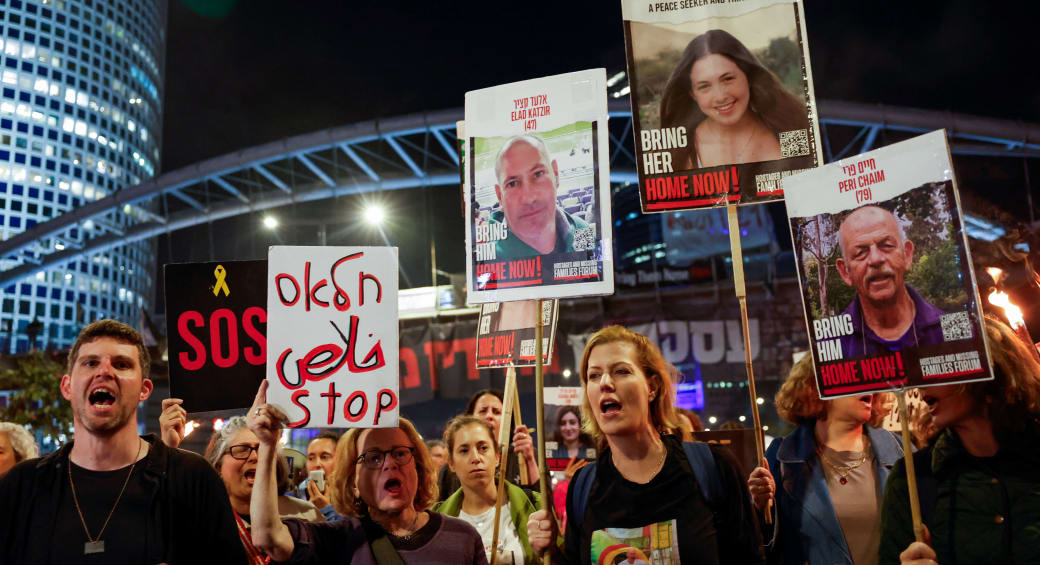
Netanyahu: Israel facing international pressure to prevent Rafah invasion

Prime Minister Benjamin Netanyahu rejected international pressure to prevent the IDF from entering Rafah in a statement made while visiting IDF soldiers on Thursday.
"While the IDF is preparing to continue fighting in Rafah, we are facing international pressure to prevent us from entering the area and completing the job. As the prime minister of Israel, I will repel these pressures," he said,
"We will enter Rafah, and we complete our mission of eliminating Hamas to restore security for the people of Israel and bring complete victory to the country," Netanyahu concluded.
Go to the full article >>EU's Lenarcic: Pockets of famine already present in Gaza
There are already pockets of famine in Gaza and it could spread to the whole region, the EU's humanitarian aid and crisis management chief Janez Lenarcic said on Thursday.
Speaking to journalists, he urged Israel to open more road routes to deliver aid to Gaza.
IDF detects and kills terrorists who launched rocket at Gaza Border communities
The military said the forces carried out the strike in less than five minutes after the squad was detected.
IDF troops detected and eliminated on Wednesday a terrorist squad that had attempted to launch a rocket from the center of the Gaza Strip into the Gaza border communities, the military announced on Thursday.
The military said the forces carried out the strike in less than five minutes after the squad was detected. The rocket from the attempted launch fell within the strip.
In the center of the Gaza Strip, forces of the Nahal Brigade continued the operation, killing several terrorists in the past day.
During one of the operations, troops identified a terrorist squad near them and subsequently eliminated it using tank fire. Separately, ground troops, in conjunction with the Air Force, killed a terrorist via an aircraft.
Go to the full article >>Delta Air to resume flights to Israel starting June 7
United, American Airlines, and Delta all suspended US service to Israel in October following the Hamas attack.
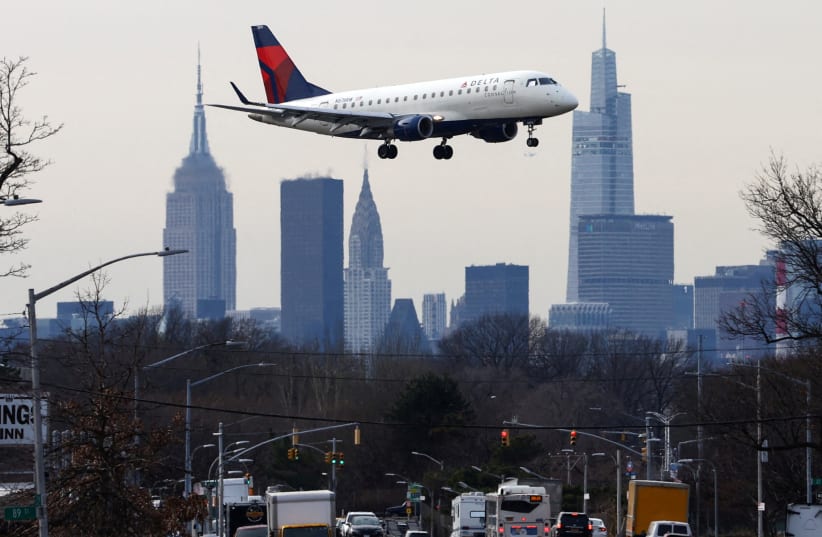
Delta Air Lines said late on Wednesday it will resume flights to Israel starting June 7, becoming the second major US carrier to do so following the Oct. 7 attack by Hamas on southern Israel.
Delta said it will begin daily flights between New York-JFK and Tel Aviv on an Airbus A330-900neo following an extensive security risk assessment by the airline. United Airlines resumed flights to Israel earlier this month from Newark but does not plan to restart flights from other US cities until at least this fall.
Delta said it will offer about 2,000 seats weekly from New York to Israel and "continues to closely monitor the situation in Israel in conjunction with government and private-sector partners."
United, American Airlines, and Delta all suspended US service to Israel in October following the Hamas attack.
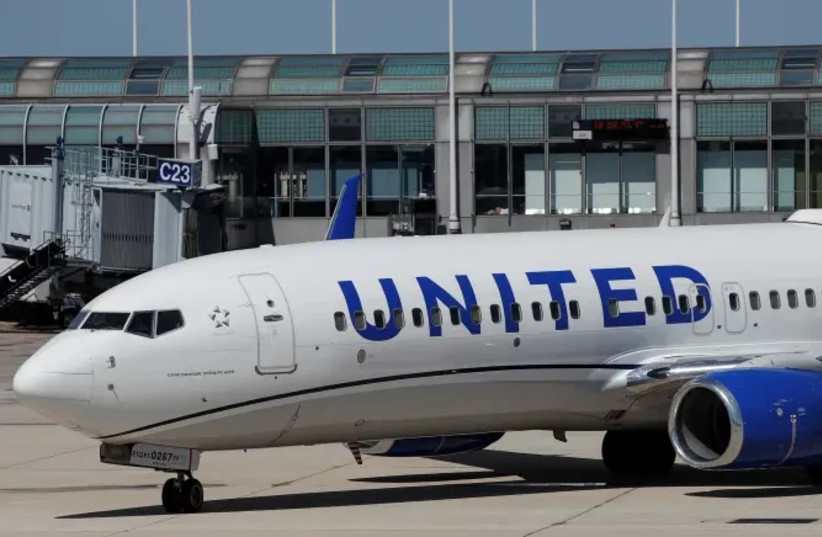
Restarting flights
Restarting US carrier flights to Tel Aviv signals a potential turning point for travel to Israel after tourism dried up on security fears following the Hamas rampage and subsequent Israeli bombardment of Gaza.
Before Oct. 7, United had four direct flights daily to Tel Aviv from Newark, San Francisco, Washington, and Chicago. The airline said the flights where service has not yet resumed "will be evaluated for resumption beginning in the fall."
Lufthansa, Swiss, Austrian, Aegean, and Air France are among other airlines that have restarted flights to Tel Aviv.
American Airlines has halted flights through Oct. 28. Last October, more than 30 US lawmakers urged the airlines to resume flights to Israel "as soon as possible."
Go to the full article >>The man allocating $800M in post-Oct. 7 donations to Israel on where the money goes
Schoenfeld agreed to sit down on Zoom for a set of two interviews with the Jewish Telegraphic Agency, which have been edited, condensed and formatted to appear as a single conversation.
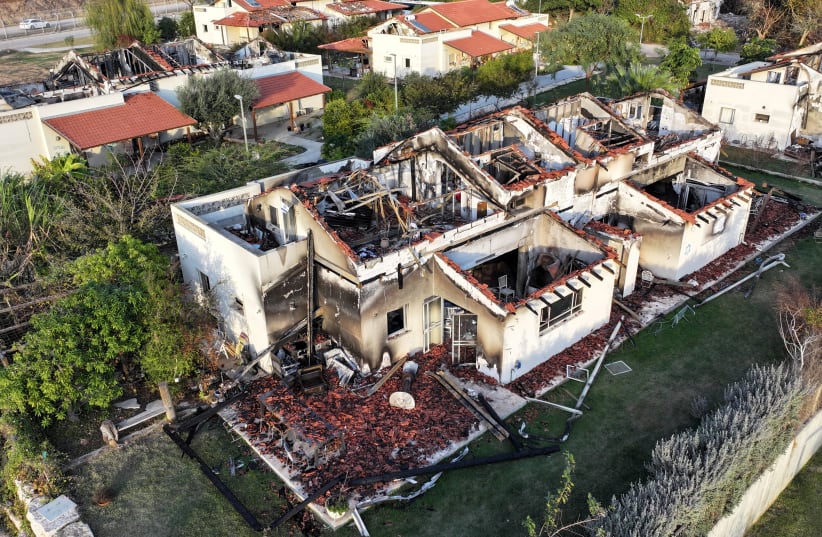
By now, Israeli charities that need funding for Oct. 7 recovery efforts know very well where to turn.
Jews in North America have donated nearly $800 million to local Jewish federations to support those efforts, a fundraising drive on a scale unseen for 50 years. About half the money has been allocated so far.
As co-chair of a body known as the Israel Emergency Allocations Committee, Jeff Schoenfeld helps oversee post-Oct. 7-related grant-making for the entire federation system. The committee is part of the Jewish Federations of North America, an umbrella organization, but includes representatives from a broad swath of institutions.
Schoenfeld and his committee have a staff of 18 in Israel helping review grant applications, which tend to get approved as long as they fit in one of four buckets: lifeline or emergency needs; mental health and trauma; economic aid; and community resilience and rebuilding. The committee also decides whether to grant the entire amount requested or some portion based on an evaluation of needs or whether other funding sources might be available.
As the media has reported, and as Schoenfeld has seen directly, the Israeli government did not meet the needs of Israeli civilians following Oct. 7. Philanthropy stepped in to fill the vacuum — a reality that Schoenfeld acknowledges but does not regard with criticism. Instead, he approaches it with a sense of duty and purpose.
A retired investment banker and past president of UJA-Federation of New York, Schoenfeld since Oct. 7 has found himself busy with a never-ending series of meetings about Israel’s recovery. The volunteer role is one of many philanthropic commitments on his schedule. He also serves on the boards overseeing the Jewish Agency for Israel and the American Jewish Joint Distribution Committee. Outside of the Jewish world, he is involved with an HIV/AIDS research organization, the foundation running NPR, and the Wharton School at the University of Pennsylvania. Motivated by his experience as a closeted gay executive on Wall Street, Schoenfeld today is also an outspoken champion of diversity and inclusion in the business world.
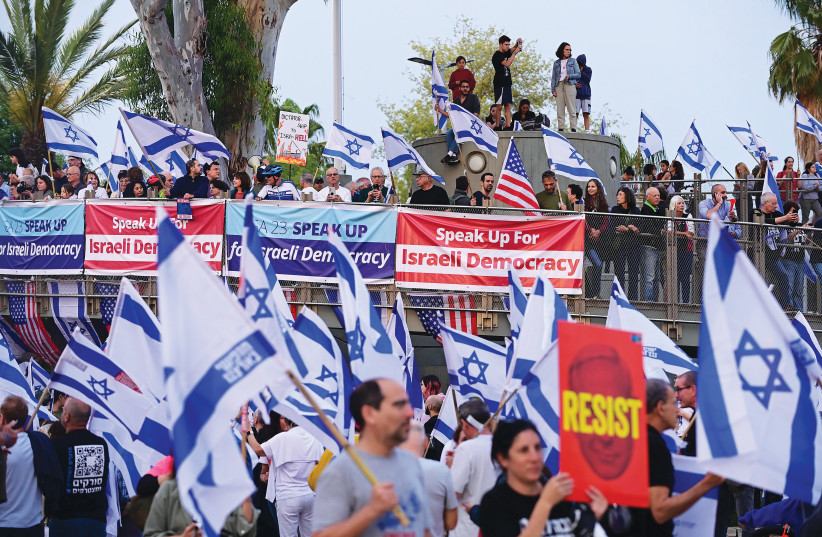
The interview
Schoenfeld agreed to sit down on Zoom for a set of two interviews with the Jewish Telegraphic Agency, which have been edited, condensed and formatted to appear as a single conversation.
JTA: Many of our readers donated to support Israel through their local federation after Oct. 7. As one of the people in charge of shepherding their money, what message do you have for them?
Schoenfeld: It’s very clear that American Jewish philanthropy has been the entire human support system for Israel since Oct. 7. The government of Israel is still formulating its response. In the future, they may become a major player but to date, it has been philanthropy.
That sounds like a challenging responsibility.
Yes, one of the most difficult challenges is understanding where the government is going to show up, when the government is going to show up, and how much the government is going to show up. And many things are appropriate for philanthropy to support, but also, many things should be the job of the government of Israel. And we are always working through that calculus.
Can you give me a few examples?
The terrorists directly targeted farm equipment across the kibbutzim in the south. A great deal of the farm equipment was destroyed that day — burned up or stolen into Gaza. So Israeli farmers in the entire Gaza envelope are without the necessary farm equipment to get back into business. The key planting season of the year begins at the end of April. Time is of the essence.
The missing equipment is a $25 million need. Half of it will come from insurance proceeds and half of it is true philanthropy: Jewish Federations of North America [just recently] made a grant to cover all the remaining costs of the farm equipment so that new tractors and farm equipment can be purchased and delivered to Israel in time for farmers to have the planting equipment by the end of April.
That is a newsworthy announcement, but could you explain how it’s related to the government versus philanthropy question?
There is no greater call on government resources than supporting agriculture, which is the primary business in these communities in the south. And the government initially has said they’re not going to fund it. So philanthropy has to step in to do the job.
The last chapter has not been written. There still are ongoing conversations with the government about covering some of the costs, but, initially, JFNA has stepped up to say this is so vital for the economic recovery of the south, that we’re going to make this happen.
I didn’t anticipate you saying that. I thought you were going to say that the government simply moves too slowly for the demands of the planting season.
So far, they’ve said no.
Any other examples that come to mind, perhaps from earlier in the war?
The largest example would be that the government said initially that they were going to cover the needs of residents who live zero to seven kilometers from the Gaza border. If you were so unlucky to live eight, or nine, or 10, you were on your own, which means philanthropy played a huge role in supporting those who had immediate needs, who just didn’t happen to live zero to seven kilometers from the Gaza border. That’s tens of thousands of people.
Is there a risk that you’re giving permission to the government not to take action — incentivizing inaction? Is that a concern?
Absolutely. But we’ve taken the stance that we have people in need, and they cannot wait. And if the government is going to be too slow, or the government decides it’s not in their coverage agenda, we’re going to step in and do what’s needed. But there’s a level of frustration indeed.
Can you say more about the frustration?
So right after Oct. 7, I think in a very smart way, the government created a special authority called Tekuma to be the key architect and funder of the rebuilding of the south. But their territory is limited. Many communities that have been hard hit are not within the Tekuma planning agenda. And, of course, Tekuma has nothing to do with the north of Israel, which is also being very hard hit [Hezbollah, which is based in Lebanon, has been firing rockets at Israel’s northern region]. So it’s a limited focus.
Tekuma have been spending the last five months in a planning phase and they are going to be releasing their plan to the government on March 18. But today, little or no money has flowed from Tekuma to meet the immediate needs of the affected communities. The federations, and more broadly, global philanthropy, has played that role.
Following the interview, Schoenfeld sent an email seeking to clarify his sentiment: “I was thinking about our conversation just now. I would want my characterization of government inaction so far to be more of a fact statement than to come off as a harsh criticism. It will do no good to come down hard on a government that is fighting a major war.”
I want to talk about politics. The federations are a coalition where people share a general pro-Israel outlook, but there are lots of perhaps conflicting opinions on Benjamin Netanyahu, his proposed judicial reforms, the specifics of the war with Hamas, or even the occupation. What impact has recent political turmoil had on the committee’s work?
None. Because, remember, our focus is humanitarian aid and economic assistance. The politics do not intervene, really, in those agenda areas.
Have there been any difficult moments of disagreement among committee members about which grant requests to accept?
We’ve been fortunate to have very generous funding. And so we haven’t had to say no, more often than not. It isn’t as if we have limited resources, and therefore we have to turn down proposals that might otherwise be funded.
I want to make sure I understand that. As long as the proposal fits within your parameters, you haven’t had to say to anyone, “We love this project but we don’t have enough money to support you.”
That’s right.
I’m sure there are a lot of cases where the grant proposal fits very clearly within your mandate, and then it’s probably an easy decision. Have you gotten good requests that just don’t fit into your mission?
Some organizations want to go back and document all the atrocities that happened for historical purposes, the National Library in Israel, for instance. That’s really important work. But it’s not our lane. That might be somebody else’s lane. And I’m reluctant to make that too public.
In normal times, when you get a grant, there are all these reporting requirements attached. But since this is considered an emergency, have these requirements been changed?
The only thing that’s changed is the timeline. We still need to measure impact. We have a team that is working to provide as much data back to our federation community as possible on the impact of our grantmaking. So the responsibility to report back has not changed. The timing has changed. We realize we’re still in a crisis. So we’re giving them plenty of time to report back.
What are the challenges you expect going forward?
We know from history that trauma needs don’t always show up early, that there are latent needs to prepare for. We are partnering with the Ministry of Health to cover some of the initial trauma-related programmatic needs, with the understanding that the government is going to pick up 100% of the cost in year two and beyond.
We are also focused on the needs of soldiers as they come off of reserve duty and try to integrate back into family life, and work life. Those are really significant issues right now.
Workforce development would be another category. Many of the evacuees from the south and potentially from the north may never return to their home communities and they are reestablishing life in new locations. Many will need help acquiring new skills.
Sorry to be grim, but are you prepared for a scenario of Hezbollah entering the fray in earnest?
We absolutely are and we’re already addressing some of the needs of the tens of thousands who have been displaced from the north. We provide annual support to major partners like the Jewish Agency and JDC so that when emergencies happen, they’re ready and don’t have to build the firehouse while the fires are raging.
Go to the full article >>
US would be willing to support limited operation in Rafah - report
A plan involving pinpoint raids into Rafah would be expected to minimize civilian casualties while still hurting Hamas.
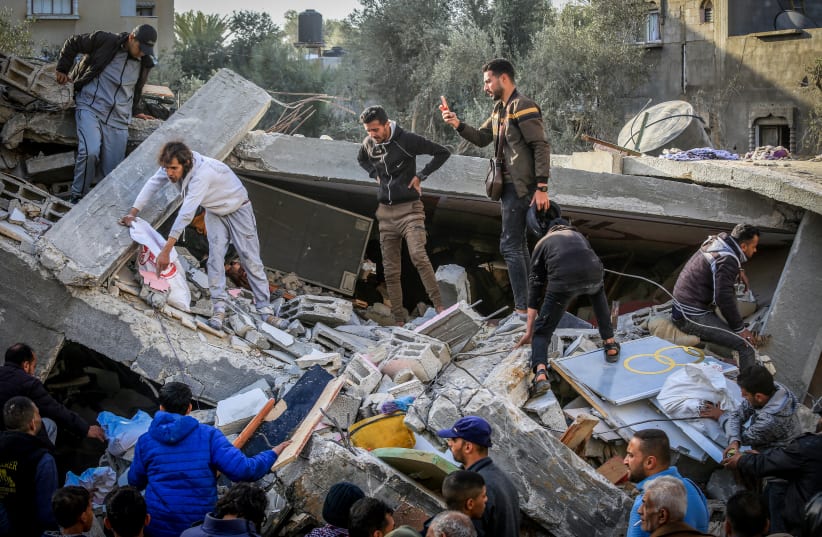
The US would be willing to support pinpoint Israeli raids targeting senior Hamas leaders in and under Rafah if Israel decides not to launch a large-scale invasion of the city, Politico reported on Wednesday.
US President Joe Biden and other senior US officials have expressed opposition to an invasion of Rafah unless the estimated 1.4 million civilians in the city can be safely evacuated. US officials have reportedly requested that Israel provide clear plans ensuring this will happen, but as of yet, no such plan has been presented.
"Given the large number of civilians that are now in Rafah, many of them displaced from other parts of Gaza, about 1.4 million, we need to see a plan that will get civilians out of harm’s way if there’s to be a military operation in Rafah – and not only gets them out of harm’s way but also ensures that they have what they need – that they have shelter, that they have food, that they have medicine. We’ve not yet seen such a plan," said US Secretary of State Antony Blinken on Wednesday.
According to Politico, senior officials in the Biden administration have told Israeli leaders that they may be willing to support a plan in which pinpoint raids are carried out in Rafah in lieu of an all-out invasion. Such a plan would be expected to minimize civilian casualties while still hurting Hamas.

Israel insists Rafah operation is necessary to win war
Israeli officials, including Prime Minister Benjamin Netanyahu, have insisted that an operation of some sort in Rafah is the only way to win the war and take down Hamas, as there are still four Hamas battalions standing in the city.
Go to the full article >>US military says destroyed 4 unmanned aerial systems in Houthi-controlled areas of Yemen
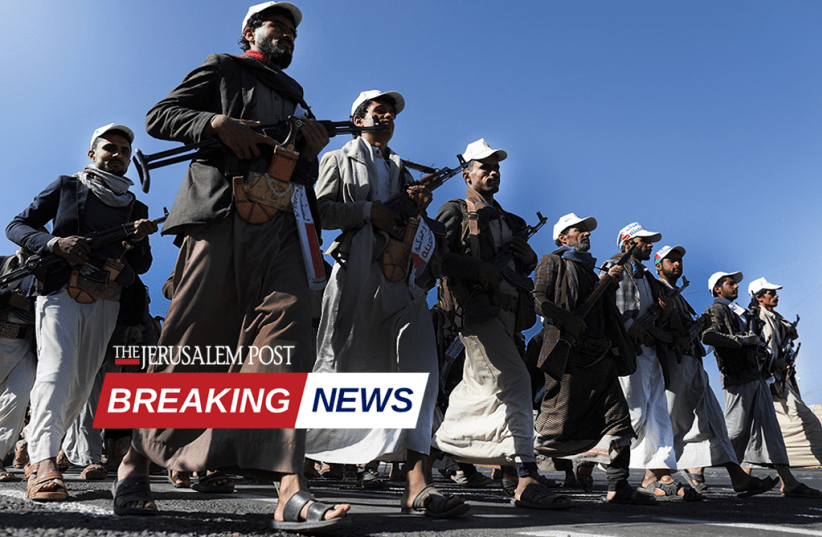
The US military said on Wednesday it had destroyed four unmanned aerial systems and one surface-to-air missile in Houthi-controlled areas of Yemen.
US Central Command said on the social media site X that the strikes came after Houthi militants fired an anti-ship ballistic missile into the Gulf of Aden.
The US Central Command (CENTCOM) said the Iranian-backed Houthi militants fired one anti-ship ballistic missile from Yemen into the Gulf of Aden, but it caused no damage to any vessels.
Go to the full article >>Palestinian FM Riyad al-Maliki accuses Netanyahu of prolonging war to remain in power
Maliki warned Israel against increased raids into Palestinian refugee camps in the West Bank, which would "provoke retaliation" against the IDF by camp residents.
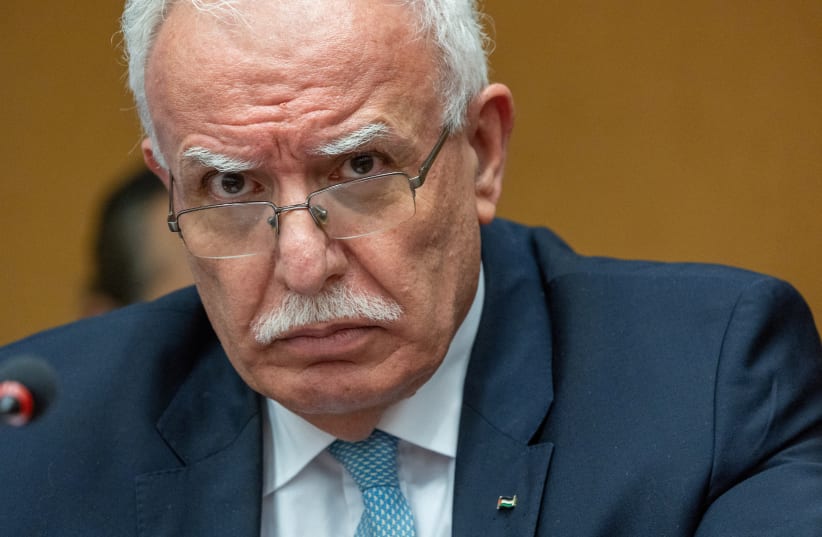
Palestinian Foreign Minister Riyad al-Maliki accused Prime Minister Benjamin Netanyahu of “prolonging the war on the Gaza Strip with the aim of remaining in power” in a statement to Arabic media on Wednesday.
The comments came during a visit by South African Ambassador Shaun Byneveldt to the Palestinian Authority's headquarters in Ramallah.
"Netanyahu is not interested in a ceasefire. On the contrary, he wants to prolong the war for as long as possible so that he can remain in power," Maliki said.
He accused Israel of using starvation as a weapon of war, saying, "There are approximately 600,000 Palestinians on the brink of starvation," he also chastised the international community for not putting enough pressure on Netanyahu to agree a ceasefire.
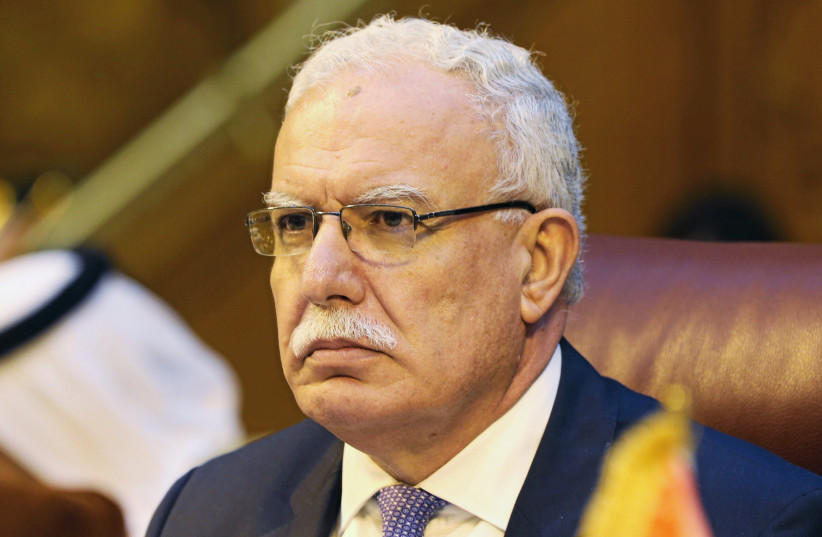
Increased pressure on Israel
Maliki called on the international community to assume more responsibility for the Palestinian issue, calling for increased pressure in the United Nations Security Council. He singled out the United States as a key factor in achieving this.
He warned Israel against increased raids into Palestinian refugee camps in the West Bank, which would "provoke retaliation" against the IDF by camp residents.
Maliki's comments came the same day as Jordanian Foreign Minister Ayman al-Safadi called on the European Union to pressure Netanyahu to bring an end to the war.
Safadi said, "The Israeli prime minister cannot be allowed to continue undermining the security of the entire region."
"He cannot be allowed to continue this war, and the world cannot accept that children die of hunger, mothers die of thirst, and that about 1.7 million Palestinians are displaced, especially since Israel continues to prevent the entry of sufficient aid to meet the needs of the Palestinians," he told his Spanish counterpart José Manuel Albares.
Go to the full article >>US asked Iran to get Houthis to stop Red Sea attacks - report
A second round of talks was supposed to be held in February but was delayed due to attempts to reach a ceasefire between Israel and Hamas.
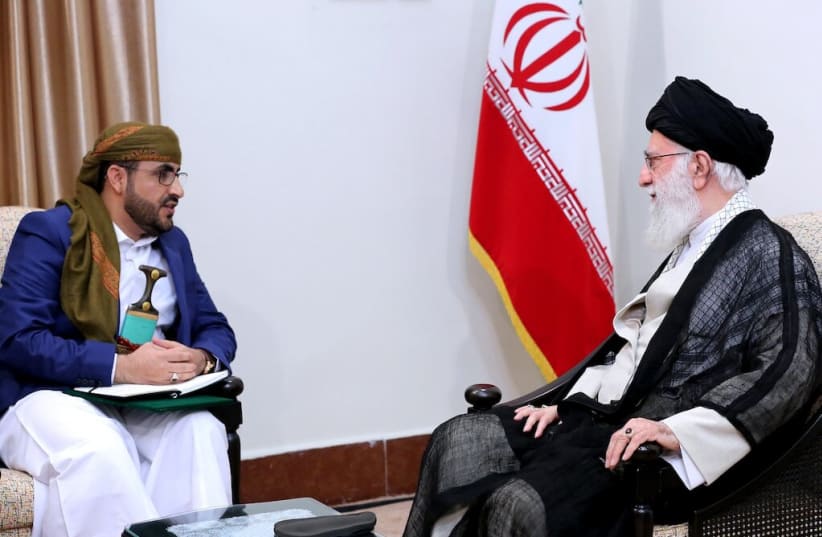
The US held indirect negotiations with Iran, asking them to get the Houthis to stop their attacks on maritime trade in the Red Sea area in January, US and Iranian officials told the Financial Times on Wednesday.
According to the report, the talks took place in Oman and also addressed Iran's nuclear program. The US delegation in the talks was led by the White House’s Middle East adviser Brett McGurk and Iran envoy Abram Paley. Iran sent deputy foreign minister Ali Bagheri Kani to the talks. The two sides spoke only with Omani mediators and not directly with each other.
A person familiar with the matter told the Financial Times that US officials see the indirect channel of communications as "a method for raising the full range of threats emanating from Iran," including conveying "what they need to do in order to prevent a wider conflict, as they claim to want."
A second round of talks was supposed to be held in February but was delayed due to attempts to broker a ceasefire between Israel and Hamas.
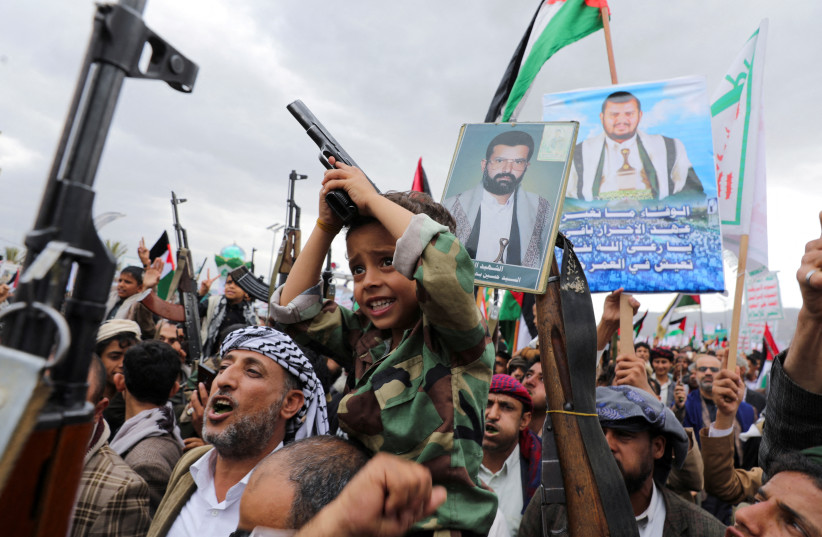
US has been working behind the scenes to pressure Iran on Houthis
While the talks were the first public discussions between Iran and the US since September, the US has been working behind the scenes to get Iran to pressure the Houthis to stop their attacks.
In January, US President Joe Biden told reporters that the US had "delivered [messages] privately" to Iran concerning the Houthi attacks, adding, "We’re confident we’re well prepared."
Additionally, in January, the Financial Times reported that the US had asked China to pressure Iran into getting the Houthis to stop attacking ships.
According to the report, the issue was raised in several discussions with Chinese officials, but there was little evidence that China had made any effort to pressure Iran on the matter. Reuters later reported that Chinese officials had asked their Iranian counterparts to help rein in attacks on ships in the Red Sea.
Iran helping Houthis attack ships
Meanwhile, Iran has reportedly been directly helping the Houthis conduct their assaults on international maritime trade, including by providing intelligence and advising the Houthis.
Vice Adm. Brad Cooper, deputy commander of US Central Command (CENTCOM), told 60 minutes in February that Iran's Islamic Revolutionary Guard Corps (IRGC) is "inside Yemen and serving side by side with the Houthis, advising them and providing them with target information."
"They're resupplying them as we sit here right now at sea," added Cooper. "We know this is happening. They're advising them, and they're providing target information. This is crystal clear."
The IRGC is also providing intelligence to the Houthis gathered by the MV Behshad surveillance vessel, according to US reports. The ship has traveled in circles around the Red Sea and Gulf of Aden in recent months. In February, NBC News reported that the vessel was targeted by a US cyberattack. Shortly after the alleged cyberattack, vessel tracking sites showed the vessel temporarily moved away from the area before returning.
Go to the full article >>US asks Panama to strip flags from Iranian ships sanctioned by Washington

The United States has asked Panama to ban Iranian vessels sanctioned by Washington from using its flag, US State Department special envoy Abram Paley said on Wednesday.
Paley said the request aims to prevent ships from being used for illegal actions, such as supporting groups designated as Iranian terrorist organizations with oil sales.
In January 2023, Panama's maritime authority said it had withdrawn its flag from 136 ships linked to Iran's state oil company in the last four years. More than 8,000 vessels sailing with its flag.
Panama has the largest ship registration in the world, with more than 8,000 vessels sailing with its flag.
It is the world's largest provider of so-called "flags of convenience" that allow ship owners to register their vessels in a country to which they have no link in exchange for a fee and freedom from oversight.
Go to the full article >>Israel-Hamas War: What you need to know
- Hamas launched a massive attack on October 7, with thousands of terrorists infiltrating from the Gaza border and taking some 240 hostages into Gaza
- Over 1,200 Israelis and foreign nationals were murdered, including over 350 in the Re'im music festival and hundreds of Israeli civilians across Gaza border communities
- 134 hostages remain in Gaza, 34 of which killed in captivity, IDF says